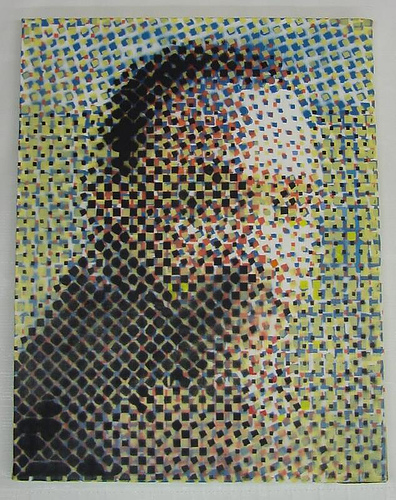By Rylan
In honor of Dr. King’s birthday, I decided to take some much needed quiet time to reflect on his life and work, re-immersing myself in his writings on human inequality and social justice. I was particularly interested in understanding the trajectory of Dr. King’s journey and the areas where his energies were focused at the time of his death. It was my hope that this would serve as inspiration for my own work with CoLab, a worker-owned cooperative whose mission it is to co-create a brighter future with purpose-driven technology.
My own personal interests are rooted in in efforts to understand the foundations of our shared humanity and the challenges we face as human beings attempting to live together in peace. My hope is that there is a common set of values that transcend our world cultures and religions and which can form the basis for us living together in peace. I am currently undertaking independent research on the topic of what these values might be by studying the world’s great religions and reading thoughts from thought luminaries from various wisdom traditions and cultures. My dive into the life of Dr. King is part of this attempt to weave a unifying human manifesto from the world’s great traditions which can provide the basis for us to live together harmoniously with a shared common set of values.
Reflecting back on the recent holiday commemorating Dr. King’s birth, I am optimistic that his example can help all to more deeply understand what is at the heart of this fundamental question, and what it truly means to be human.
I began by opening Dr. King’s final book, Where Do We Go From Here. The following passage illustrates the premise of my research that we as human beings must find a way to live together in peace despite the many distinctions which divide us:
A widely separated family inherits a house in which they have to live together. This is the great new problem of mankind. We have inherited a large house, a great “world house in which we have to live together—black and white, Easterner and Westerner, Gentile and Jew, Catholic and Protestant, Moslem and Hindu—a family unduly separated in ideas, culture and interest, who, because we can never again live apart, must learn somehow to live with each other in peace.
How striking it was (if not surprising) to see that Dr. King was equally focused on this challenge of living together in peace in our “World House.” By identifying the theme of disparate religions and cultures needing to find a way to live together in peace, Dr. King has put his finger squarely upon the issue which I see as the root challenge facing humanity today: If we are to usher in a ‘golden age’ of life on earth where we truly love our neighbors as if they were our children, then Dr. King and I are of a similar mind as to the challenge we must overcome.
In looking for a solution to this challenge, Dr. King focused squarely on poverty:
Equality with whites will not solve the problems of either whites or Negroes if it means equality in a world society stricken by poverty and a universe doomed to extinction by war. …. The time has come for an all-out world war against poverty.
In working to address poverty, Dr. King initiated a new campaign – the Poor People’s Campaign – which was in full swing at the time of his assassination. With his death, the campaign was dealt a major blow, and one cannot help but wonder what he would have been able to accomplish had his efforts to move from an “era of civil rights to an era of human rights” not been cut short.
Dr. King’s reasoning for eradicating poverty cut to the heart of the question underpinning what it means to be human:
But the real reason that we must use our resources to outlaw poverty goes beyond material concerns to the quality of our mind and spirit. Deeply woven into the fiber of our religious tradition is the conviction that men are made in the image of God, and that they are souls of infinite metaphysical value. If we accept this as a profound moral fact, we cannot be content to see men hungry, to see men victimized with ill-health, when we have the means to help them.
Dr. King argued rightly that we as human beings have a fundamental moral responsibility to help those in need. This moral responsibility is at the heart of CoLab’s professional and social vision, as we continually seek new ways to leverage technological resources, infusing them with insight to improve human lives and address global challenges (including those issues of economic injustice taken up by Dr. King during his final campaign).
While we certainly cannot say that all technology provides a silver-bullet solution to such deep-rooted issues as poverty and war, we at CoLab are optimistic that technology does indeed have a role to play in addressing issues of global inequality. And I would imagine that Dr. King himself would have embraced modern technology as an accelerator of social change were he still alive.
And so in honor of Dr. King, I would humbly propose we take a moment to strengthen our resolve and to re-establish our intent to work diligently toward solutions that can one day bring peace to our World House. While this is still a book very much in the process of being written….if we do not work for the betterment of all, for what purpose do we as humans live?
Photography by: ▲Bonard▼ via Visualhunt.com / CC BY-SA
